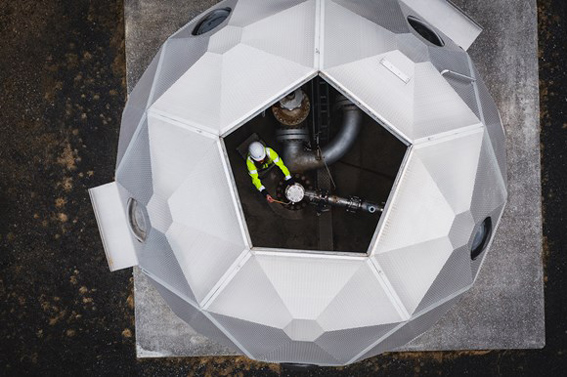
A team of Scotland’s leading Earth scientists have received £1 million of UK Government funding to develop new ways to measure the capture of carbon dioxide in volcanic rock.
This relatively new carbon storage technique, known as mineralisation, has been used successfully in Iceland, where the reactivity of the basalt volcanic rock converts the carbon dioxide rapidly into new minerals, safely locking it away underground.
Carbon capture and storage is becoming increasingly important to reduce the levels of greenhouse gases such as carbon dioxide in the atmosphere, where they are the principal contributor to global heating.
The scientists will work with Icelandic mineralisation operator Carbfix to test new methods to track the carbon dioxide being captured from the country’s largest geothermal power plant and verify its safe and permanent storage.
Dr Stuart Gilfillan, of the University of Edinburgh, and his team will use mineral analysis techniques and a novel CO2 fingerprinting tool, currently being patented by Edinburgh Innovations, the University’s commercialisation service.
The INCLUSION project, in collaboration with Carbfix and the Scottish Universities Environmental Research Centre (SUERC), has been awarded £1 million of funding from the Natural Environment Research Council (NERC)’s Pushing the Frontiers scheme.
Dr Gilfillan said:
“This project will combine the state-of-the-art scientific laboratory facilities available in Scotland with the world’s leading CO2 mineralisation project to provide essential understanding of how to safely lock away CO2 underground in basalts.
“We will also develop our understanding of the reactivity of basalt and other volcanic rock, to understand the potential of mineralisation in other parts of the world, such as Scotland.”
Professor Fin Stuart, Director of SUERC, said:
“We will determine the unique chemical fingerprint of the injected CO2 at Carbfix, and record how that changes during the storage process. This will enable us to determine how, and how much, CO2 is stored and provide confidence in the amount of CO2 that can be stored by mineralisation in the future, which can also aid participation in carbon credit schemes.”
Dr Sandra Ósk Snæbjörnsdóttir, Head of CO2 Mineral Storage at Carbfix, said:
“Carbfix is born out of collaboration between academia and industry. Partnerships with prestigious research institutes such as the University of Edinburgh helps us to increase our understanding of the natural processes we build our technology on, add to our existing verification methods, and move forward the technical development. Furthermore, it gives new perspectives, and trains the next generation of experts in the field. We are honoured to collaborate with this world-leading team of scientists, and excited for the outcome.”
 KEYFACT Energy
KEYFACT Energy